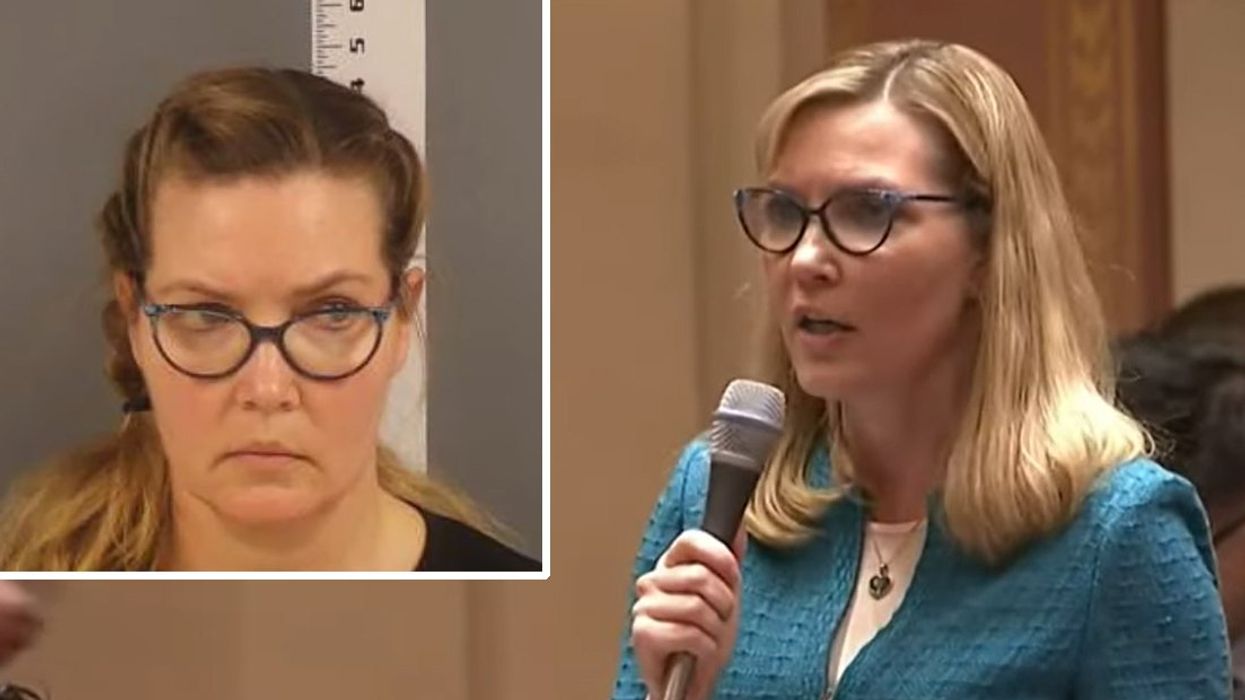
© 2024 Blaze Media LLC. All rights reserved.
grief-stricken, she "ran out of coping skills."
After accidentally administering a fatal overdose of calcium chloride to an eight month old baby in September of last year, the grief-stricken nurse responsible for the tragedy has committed suicide. A nurse of 24 years with an unblemished record, Kimberly Hiatt was reportedly "devastated" from the incident. The subsequent investigation and loss of her job only accelerated Hiatt's descent into depression.
MSNBC explains what happened when Hiatt gave the child a fatal overdose:
In Hiatt’s 24-year career, all of it at Seattle Children’s, dispensing 1.4 grams of calcium chloride — instead of the correct dose of 140 milligrams — was the only serious medical mistake she’d ever made, public investigation records show.“She was devastated, just devastated,” said Lyn Hiatt, 49, of Seattle, Kim’s partner and co-parent of their two children, Eli, 18, and Sydney, 16.
That mistake turned out to be the beginning of an unraveled life, contributing not only to the death of the child, 8-month-old Kaia Zautner, but also to Hiatt’s firing, a state nursing commission investigation — and Hiatt's suicide on April 3 at age 50.
While Hiatt's firing seems straightforward enough, MSNBC's report touches on other possible reasons for Hiatt's dismissal from Seattle Children's. Hospital administrator's alleged Hiatt's error was inconceivable given her level of experience and that she carelessly violated dosing protocols. In addition, MSNBC reported Hiatt's termination might have also been due to discrimination, as Hiatt was a lesbian.
However, investigators also said they had concerns about “Patterns of behavior re: Boundaries, Authority, Relationships.”A co-worker had filed a sexual harassment claim against Hiatt, who was a lesbian, in 2008, alleging Hiatt acted inappropriately by hugging her and kissing her on the cheek. In a letter, Hiatt denied there was anything sexual about the action, which she said was meant to comfort the co-worker during a tough time, and described the investigation as a “witch hunt.” She said the Human Resources department had a history of discriminating against her because of her sexual orientation with one document dating to 1994.
Seattle Children’s officials denied that Hiatt’s personal life had anything to do with her dismissal. “Our strong support for the diversity of our staff and the community we serve is well-established,” officials wrote. “Kim’s departure from Children’s was unrelated to her sexual orientation.”
Records revealed that Hiatt was shocked to be terminated for a single error, however tragic the outcome, as two weeks prior to the incident a professional evaluation awarded her as a "leading performer:"
"Kim's nursing practice was incredible," Lyn Hiatt said. "She was smart, she was quick."A storm of media attention followed news of the error, spurring state nursing commission officials to open an investigation into whether Hiatt’s license should be revoked. Ultimately, the agency imposed sanctions instead, including a $3,000 fine, 80 hours of new coursework on medication administration and four years of probation in which any supervisor would be required to report on Hiatt's work every 90 days.
Eventually, however, an anguished Hiatt "ran out of coping skills." In the wake of her death, the Washington State Nurses Association reportedly disputed Hiatt's dismissal and negotiated a settlement with the hospital on her behalf. In the meantime, WSNA officials have reported hearing from other nurses who are worried the same fate might befall them:
“It certainly has heightened that fear factor,” said Sally Watkins, assistant executive director of nursing practice, education and research for the WSNA.A survey of WSNA nurses in the months after Hiatt’s case became public found that half of respondents believe their mistakes will be held against them personally. Even more worrisome, nearly a third say they would hesitate to report an error or patient safety concern because they’re afraid of retaliation or harsh discipline.
“Punitive actions are actually counterproductive. Everything in the literature points to that not being the right step to take,” Watkins said. “Nurses in that unit or hospital will not report things. There’s this heightened awareness: It could be me.”
(H/T: MSNBC)
Want to leave a tip?
We answer to you. Help keep our content free of advertisers and big tech censorship by leaving a tip today.
Want to join the conversation?
Already a subscriber?
more stories
Sign up for the Blaze newsletter
By signing up, you agree to our Privacy Policy and Terms of Use, and agree to receive content that may sometimes include advertisements. You may opt out at any time.
© 2024 Blaze Media LLC. All rights reserved.
Get the stories that matter most delivered directly to your inbox.
By signing up, you agree to our Privacy Policy and Terms of Use, and agree to receive content that may sometimes include advertisements. You may opt out at any time.



